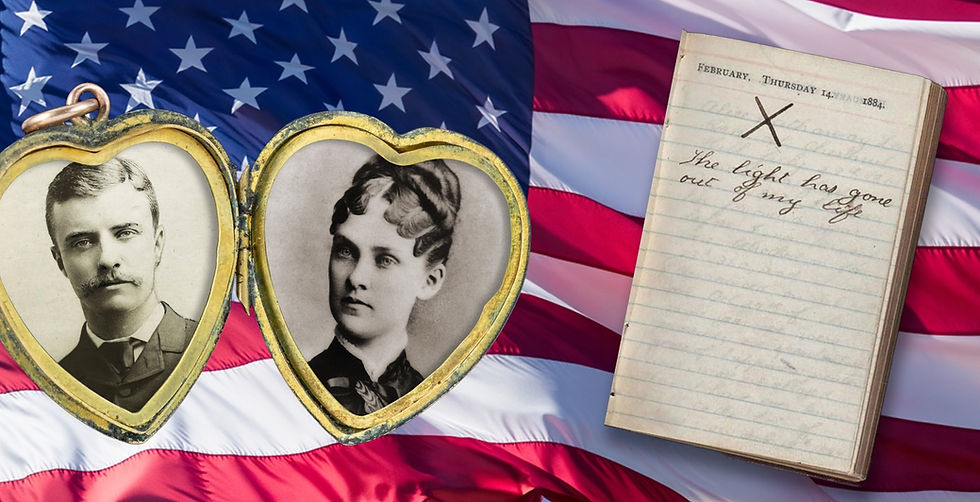The Scouts in Nashville
- Matthew Kerns

- Sep 18, 2022
- 3 min read
Updated: Sep 30, 2022
One September 19th and 20th, 1873, The Scouts of the Plains played the Grand Opera House in Nashville, Tennessee.

Buffalo Bill and Texas Jack were now veterans of multi-day stops in nearly 70 different cities.
During their first season they had been labeled as "bad actors" by newspapers in nearly every city they visited. They hadn't become better actors over the course of those shows, but they were what Bill Cody called "first class stars," who might not remember all their lines but were filly capable of drawing immense crowds and enchanting audiences with their "blood and thunder" drama. And as unpolished as Texas Jack and Buffalo Bill were as actors, the new addition to their cast was decidedly worse.
Wild Bill Hickok was perhaps the most famous western man in America, his exploits as a gunslinger and lawman having been read in newspapers and periodicals alike. Myth had already mixed with reality, and Hickok was larger than life almost from the moment he achieved any measure of widespread notoriety and fame. What he wasn't particularly good at was acting.

Buffalo Bill later wrote that "Wild Bill had a fine stage appearance and was a handsome fellow, and possessed a good strong voice, yet when he went upon the stage before an audience, it was almost impossible for him to utter a word. He insisted that we were making a set of fools of ourselves, and that we were the laughing-stock of the people. I replied that I did not care for that, as long as they came and bought tickets to see us."

The scouts made their appearance as scheduled on the 19th, but the next night, with a large crowd waiting to be allowed into the Opera House, the show's cast and crew never showed. The Nashville Union and American newspaper reported that "Buffalo Bill and Company, who were advertised to appear last night at the Opera House, failed to make an appearance. A large crowd were present waiting for the doors to open, and of course were sadly disappointed. The cause of a non-appearance is not known."

The Scouts did manage to make their next scheduled show in Cincinnati, where a reporter filed this review:
"Buffalo Bill, King of the Bordermen was brought out to a full house last night...the material of the play consists of the regulation Dutch and Irish characters, a well-rouged heroine, six "Indian" supes, and the three stars: Buffalo Bill, Texas Jack, and Wild Bill—the "border" men, of which the first is the "King."
The Ninth-Street manager, to whose enterprise the town is indebted for this visitation, must be congratulated on having at last found something that pays, for the house last night scooped in every bootblack and corner loafer in town, but as their money is as good as anyone else's, certainly the manager is not in a position to complain.
"Buffalo Bill" is the connecting link between the scum of the cities and the scum of the plains, the mouthpiece of the unfledged ruffianism that requires the vigilance of the police the year round to keep within bounds.
Not one of the three principal roughs has the least notion of acting, for it is as much as any one of them is capable of to recite a simple English sentence, and on his natural level, if he got a position in a theater at all it would be at shoving scenes. It is as "border men," however, that they base a claim to intrude themselves on the community—as killers of half-breed Indians, and fighters about the drinking-shops of new settlements but here, too, they are weak, for there are in our midst , which is at the same time no cause for congratulation, any number of men who could beat them at that game. In our County Jail we have a quartette beside which they are nothing. Cody and his friends always fought, in well-armed gangs, against the effeminate, defenseless beggars of the prairies, while our "Wild Bill," in every case, killed his man in single fray, the victim, three times out of four, being the biggest man. It makes the difference, however, between savage and civilized life, that these brought are let loose to prey upon society, while ours are safely locked up, thus preventing other managers than the Sheriff from getting up a reveal sensation, and he would not be allowed to take money for it.
But there is one good side to the show. By exhibiting themselves, Cody, Omohundro, and Hickok make enough to buy refreshments, which otherwise they might be apt to get in a different way, thus relieving the traveler by night of much anxiety and the corporation treasury of expense. Therefore let them be treated as was old "Eccles" in the play—let them have a fair supply of money."



Comments